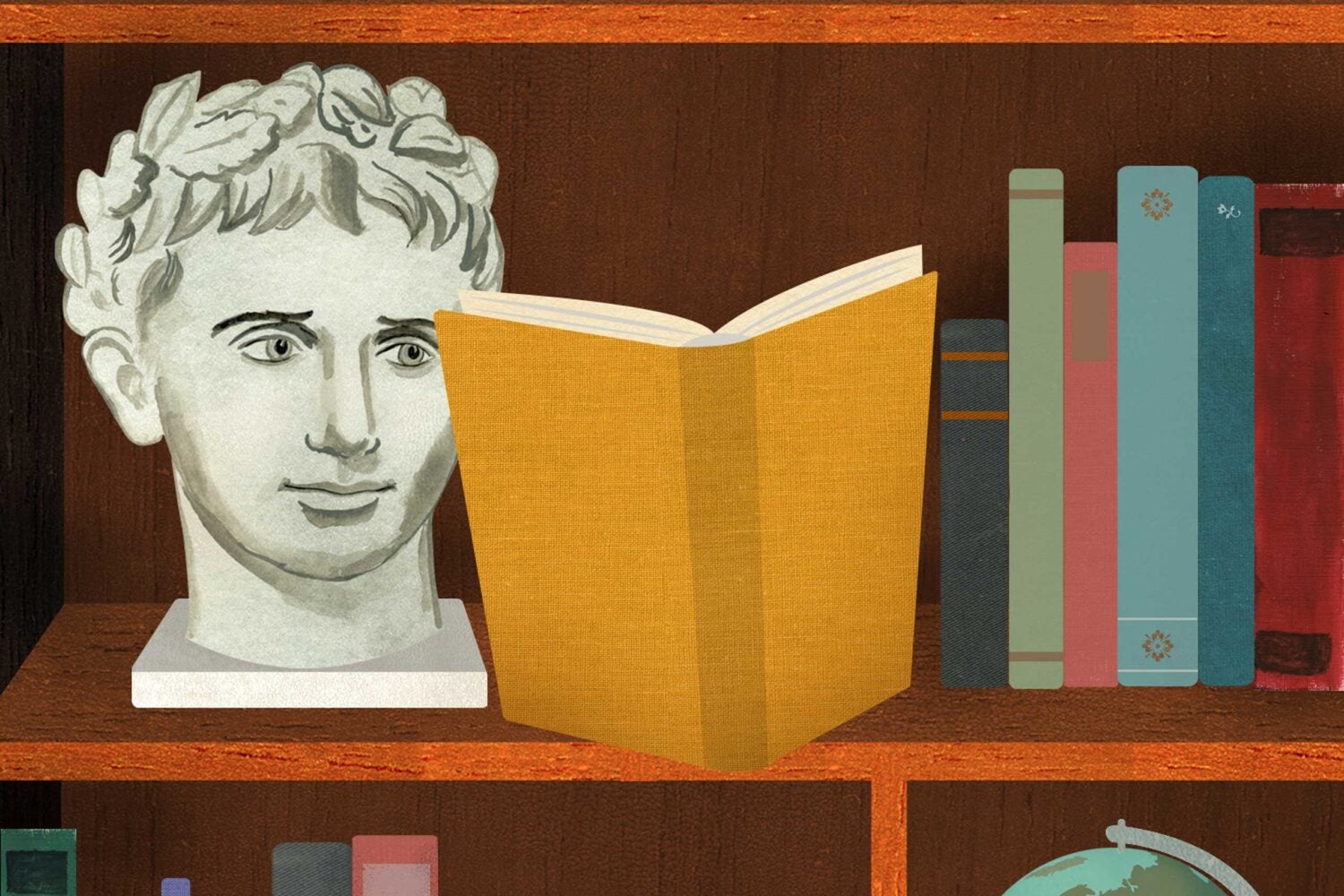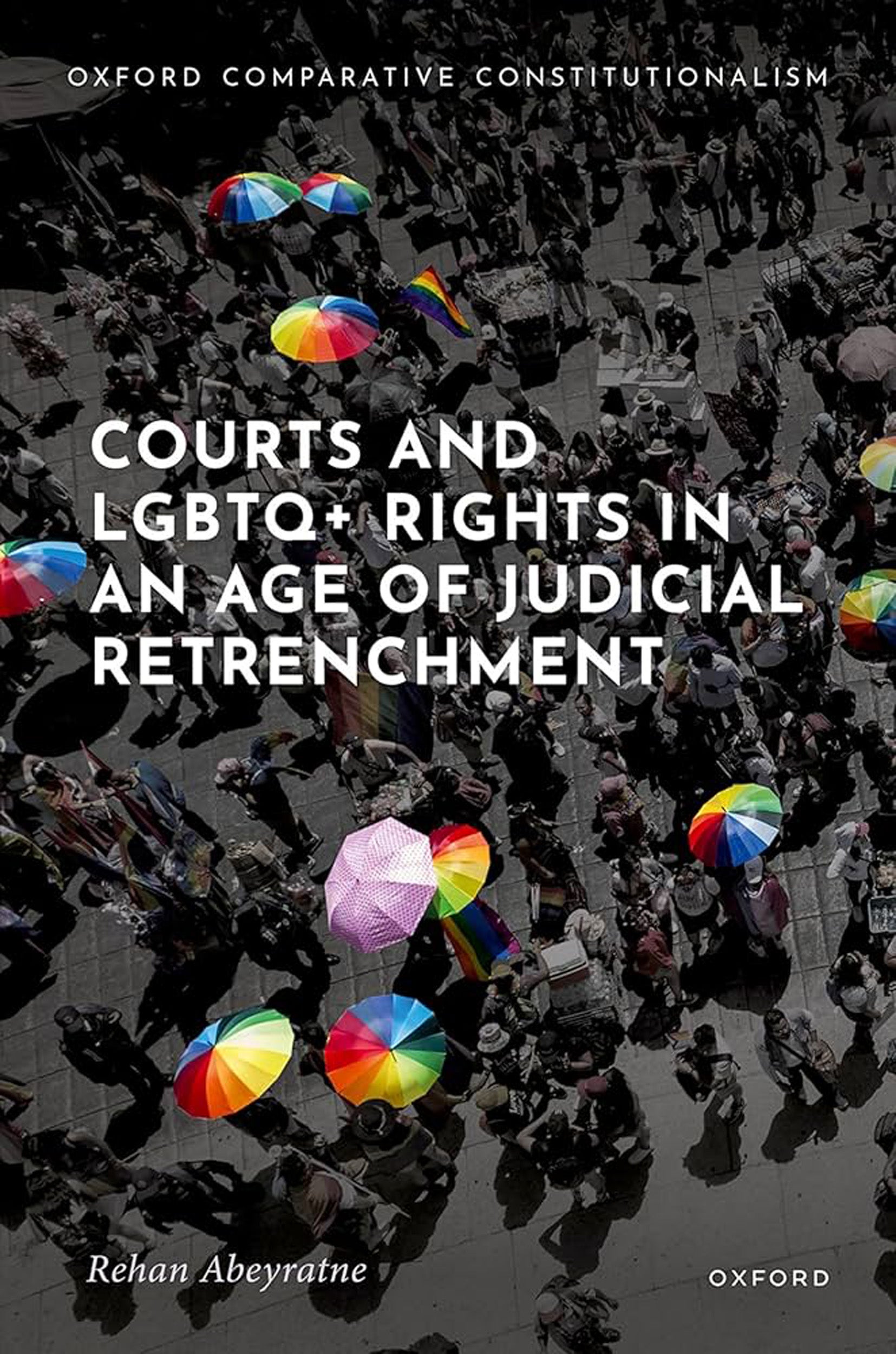
“Courts and LGBTQ+ Rights in an Age of Judicial Retrenchment,” by Rehan Abeyratne ’10 (Oxford University Press)
Rehan Abeyratne, professor and associate dean at Western Sydney University School of Law in Australia, analyzes cases involving LGBTQ+ rights decided by high courts in the United States, India, and Hong Kong. In recent years, LGBTQ+ rights have represented “a judicial safe space,” he writes, allowing courts to show their commitment to liberal values and to advance a marginalized population. Yet, each country’s courts have turned more conservative in response to reactionary trends, according to Abeyratne. He critiques “shallow, inconsistent, and sometimes insincere judicial commitments to LGBTQ+ rights,” which result, he writes, in “problematic downstream effects.” The approach to LGBTQ+ rights is often designed to preserve appearances, he contends, which is not desirable nor likely to sustain those rights for long.
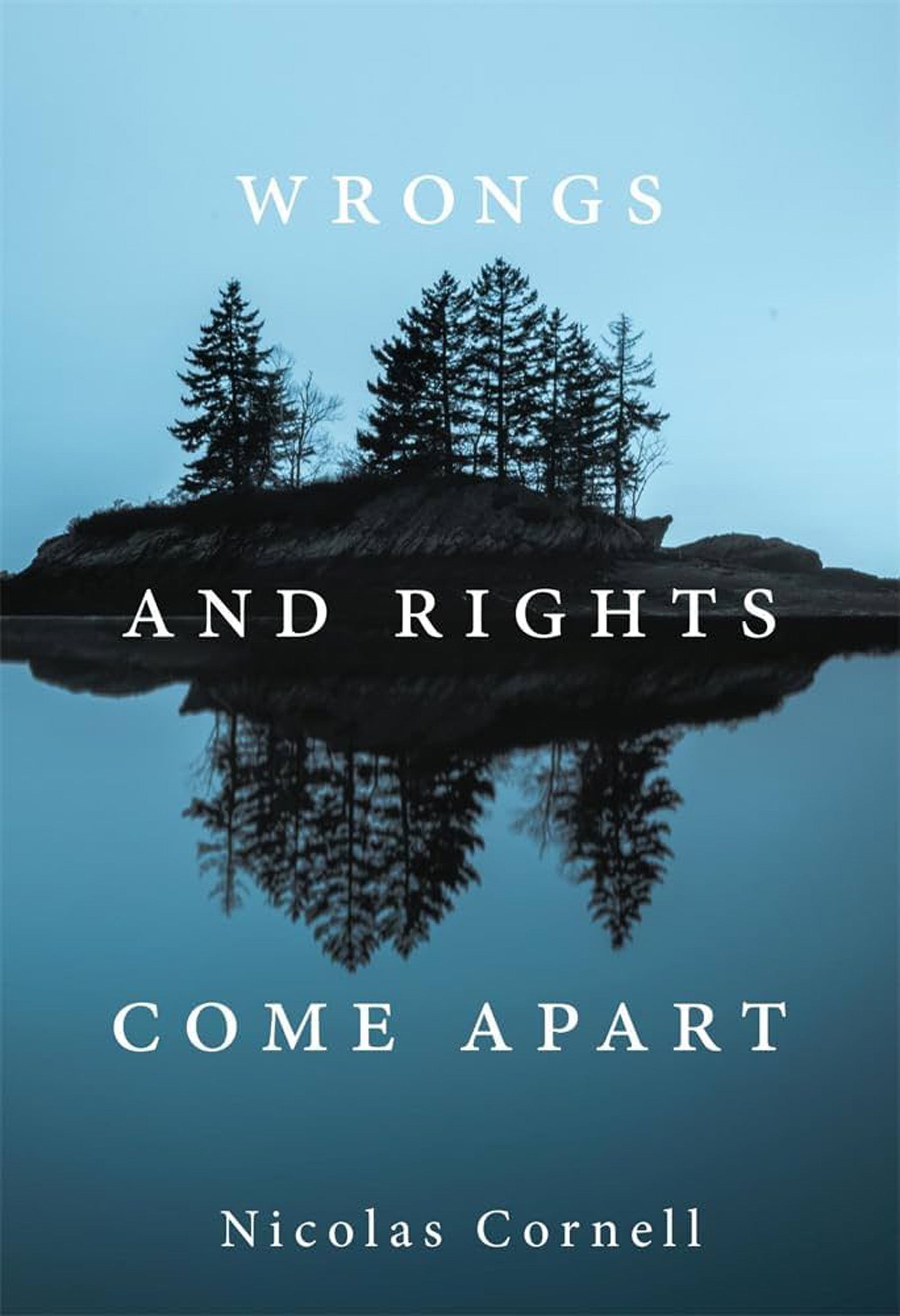
“Wrongs and Rights Come Apart,” by Nicolas Cornell ’10 (Harvard University Press)
As described by Nicolas Cornell, it’s commonly understood that if someone is wronged, by definition their rights have been violated, just as to have a right means that someone could could be wronged. His book, however, decouples rights and wrongs, using examples from law, literature, and popular culture. For example, someone may be wronged by withdrawal of love, as he highlights in the novel “War and Peace,” but no one has a right to that love. We are connected to each other not merely when we owe someone a duty, writes the professor at the University of Michigan Law School (who also earned a Ph.D. in philosophy from Harvard), but also by virtue of living in a moral community.
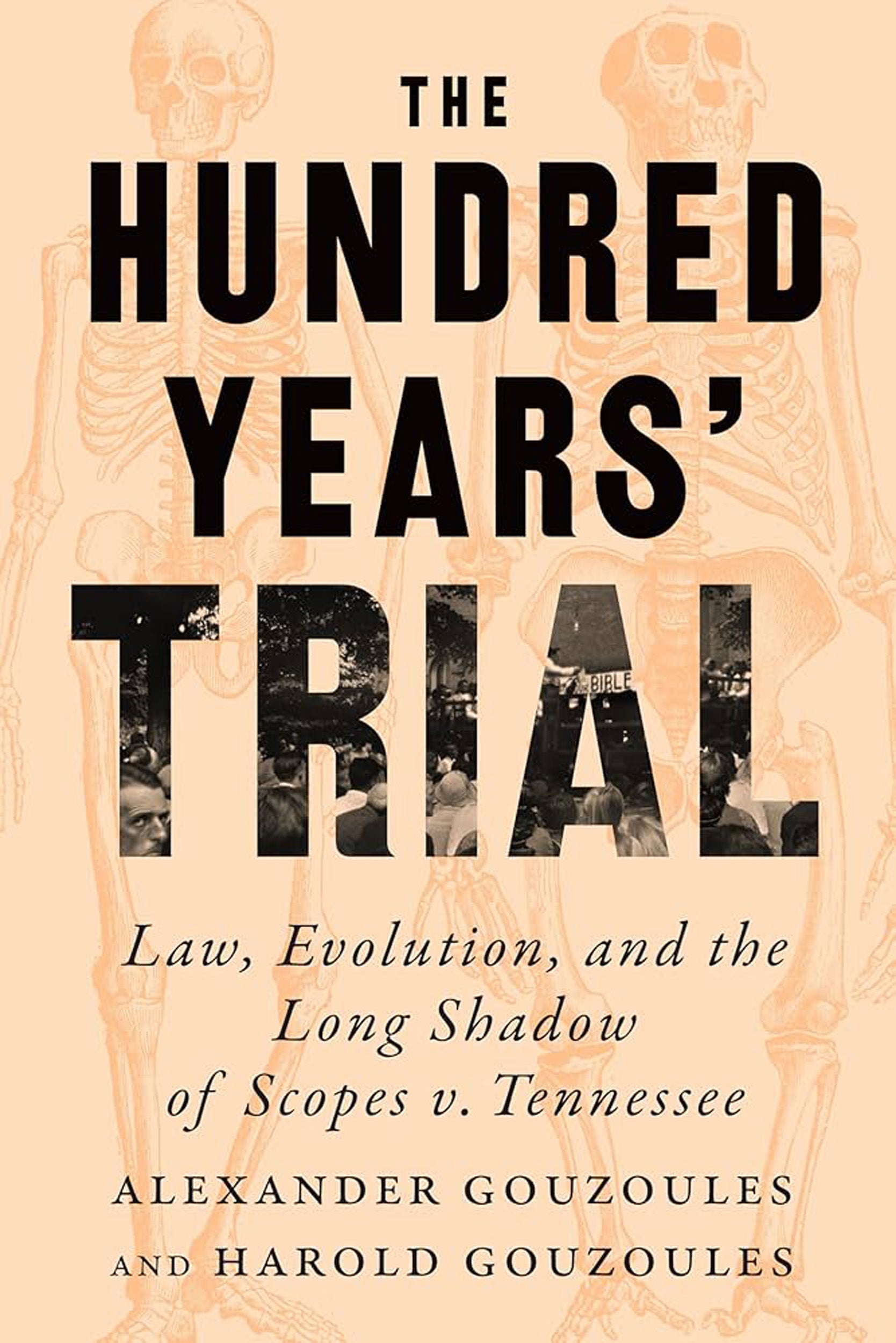
“The Hundred Years’ Trial: Law, Evolution, and the Long Shadow of Scopes v. Tennessee,” by Alexander Gouzoules ’14 and Harold Gouzoules (Johns Hopkins University Press)
The Scopes trial, write the authors, has “come to symbolize a crucial juncture in the American narrative, where the intertwining threads of science, religion, law, and media converged to shape public discourse.” On the trial’s 100th anniversary, Alexander Gouzoules, associate professor at the University of Missouri School of Law, and evolutionary biologist Harold Gouzoules (son and father, respectively) detail its ongoing impact. They begin with Darwin’s theory of evolution and the immediate reaction to it and move to the trial itself, including its legal and scientific arguments. The debate that Scopes sparked remains relevant and its legacy in flux, they write, citing recent cases that challenge the teaching of evolution in the classroom and efforts to bring religion to the public school curriculum.
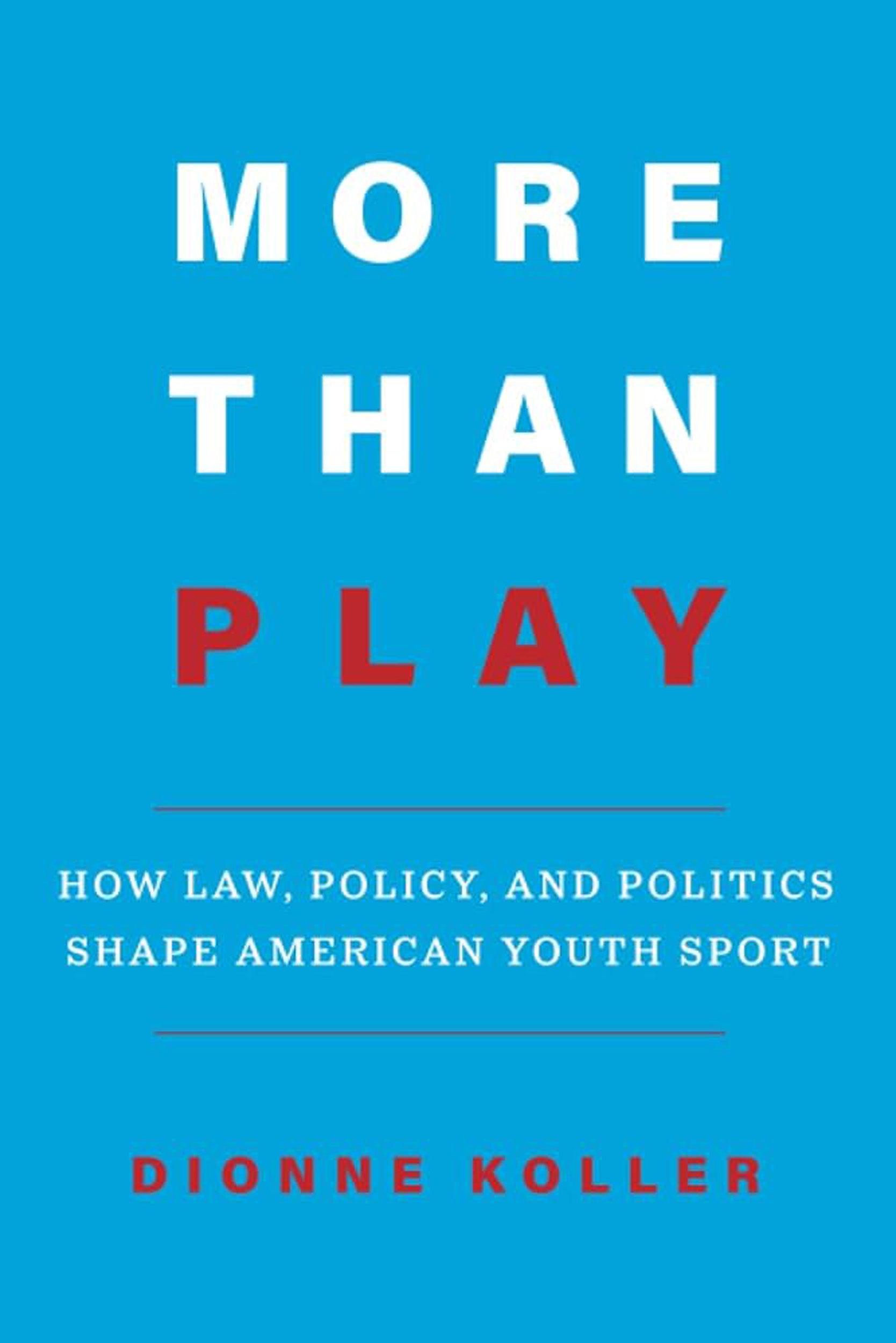
“More Than Play: How Law, Policy, and Politics Shape American Youth Sport,” by Dionne Koller LL.M. ’22 (University of California Press)
Participation in youth sports is typically thought to benefit children in many ways, such as contributing to better health and educational outcomes, asserts Dionne Koller. Yet, the reality is that most children quit because of issues like pressure to specialize, overtraining, and emphasis on winning, she notes. The law professor at the University of Baltimore, who also directs the school’s Center for Sport and the Law, writes that the conditions of youth sports are shaped by law and policy, particularly the privatized, largely unregulated structure that Congress endorsed. She examines the beneficiaries of that structure “who claim a stake in the surplus value children’s participation generates,” ranging from the youth sports industry itself to professional sports leagues and the U.S. Olympics.
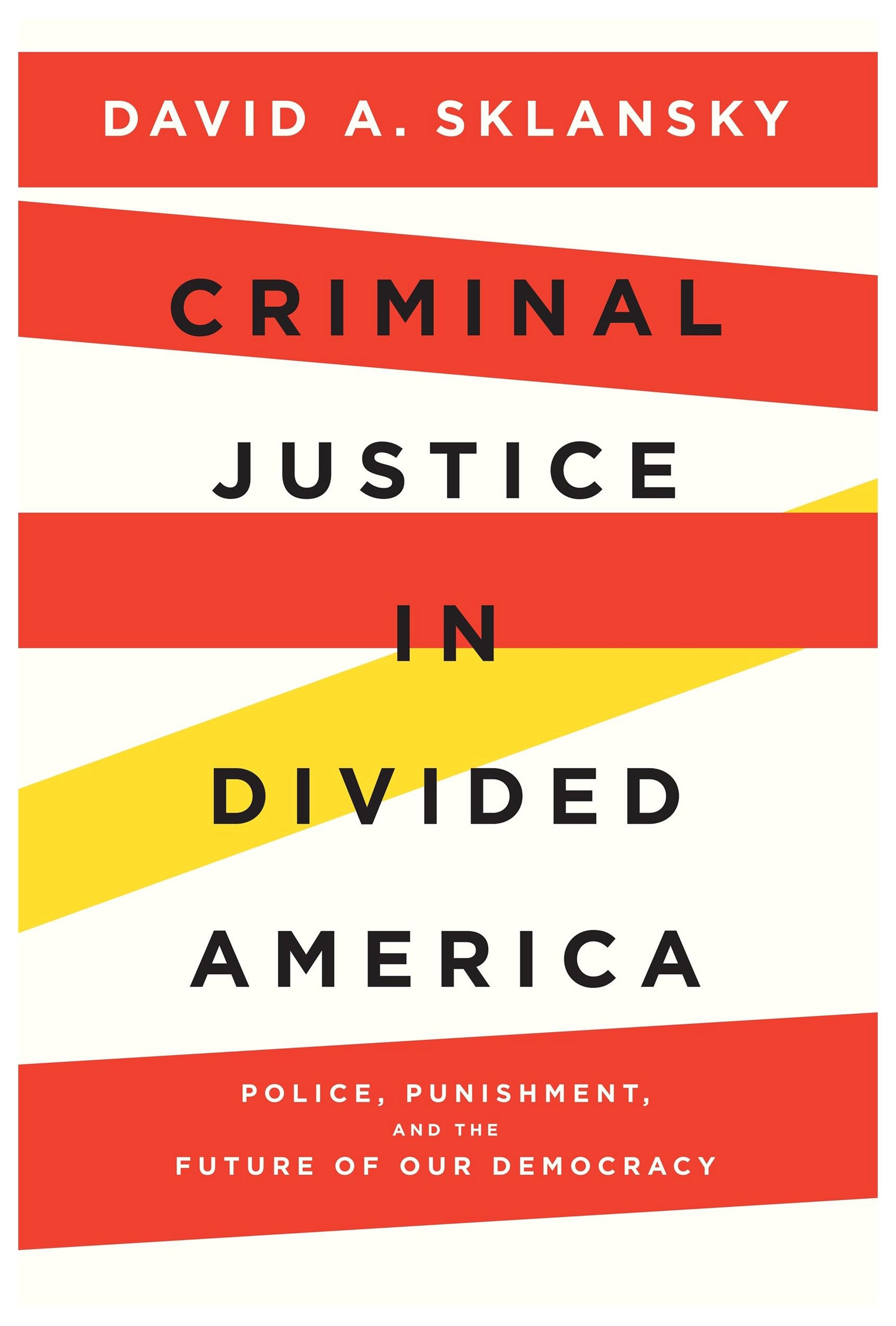
“Criminal Justice in Divided America: Police, Punishment, and the Future of Our Democracy,” by David A. Sklansky ’84 (Harvard University Press)
The U.S. criminal justice system faces two crises, contends David Sklansky, a Stanford Law School profesor: It neither does enough to prevent crime, nor does it deliver enough justice. Finding solutions requires addressing threats to American democracy, such as the rise of authoritarian populism and widening polarization, he writes. The book offers chapters on policing, prosecution, adjudication, and punishment, recommending reforms that Sklansky notes could draw support from both sides of the partisan divide, including restorative justice and efforts to reduce mass incarceration. “[P]olicing, prosecution, and punishment can be made more effective, more equitable, and more humane, in ways that can help bridge our divides and make our society more resiliently democratic,” he writes.
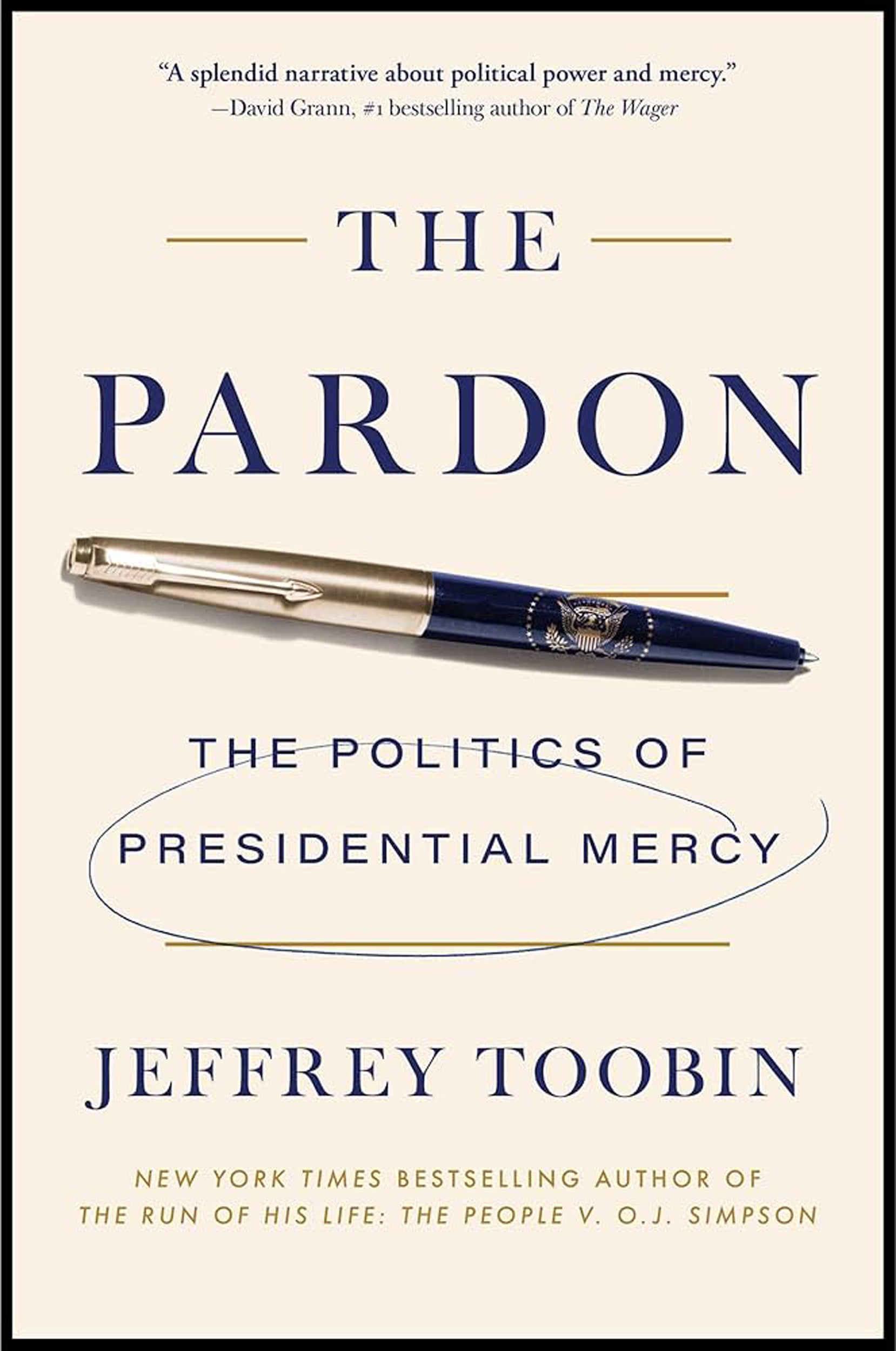
“The Pardon: The Politics of Presidential Mercy,”
by Jeffrey Toobin ’86 (Simon & Schuster)
The president’s pardon power as outlined in the U.S. Constitution is the provision most closely related to the authority of a king, writes Jeffrey Toobin, who believes that unchecked power can lead to peril. “Presidents improvise their methods for conferring pardons,” he writes, “and this lack of structure invites manipulation and misjudgments.” That dynamic played out most prominently in Gerald Ford’s pardon of Richard Nixon, which the author details by scrutinizing those who influenced Ford’s decision, including Nixon loyalist Alexander Haig and Antonin Scalia ’60, then a Justice Department attorney. The presidents who followed Ford drew lessons from the pardon of Nixon, reinforcing the political nature of pardons, writes Toobin, who links what he calls Ford’s unwise decision to Donald Trump’s recent pardons of Jan. 6 defendants.
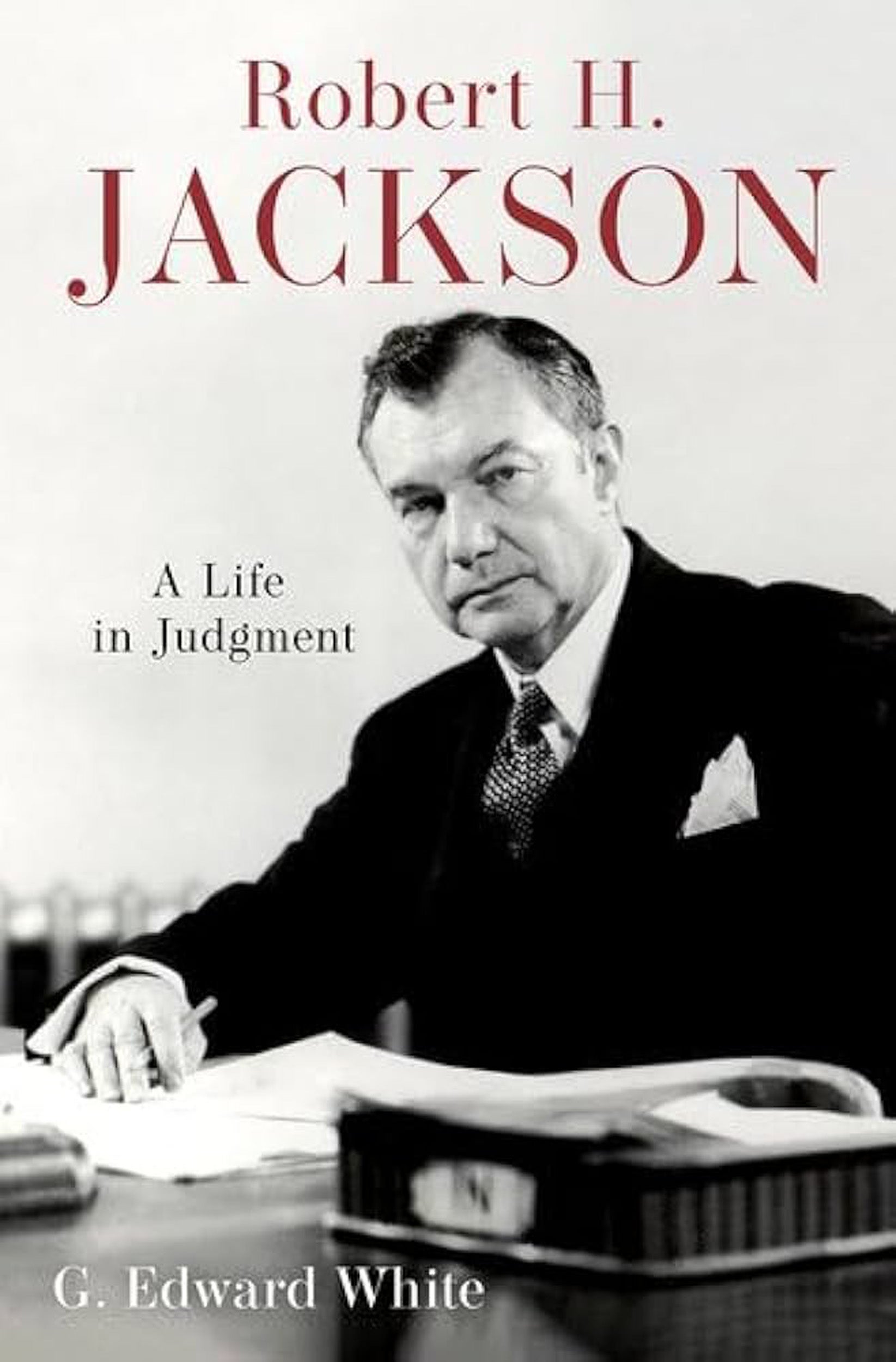
“Robert H. Jackson: A Life in Judgment,” by G. Edward White ’70 (Oxford University Press)
Robert H. Jackson was extraordinary for many reasons, writes G. Edward White: the last Supreme Court justice who did not attend college; a solicitor general and attorney general of the United States; and perhaps most prominently, the chief American prosecutor of Nazi war criminals at the Nuremberg Trials.He also was a compelling figure, who preferred the advocacy he practiced as solicitor general to the collective decision-making on the Court, where he tended toward conflict with his colleagues, according to White. The author, who also has written books focused on Justices John Marshall, Oliver Wendell Holmes, and Earl Warren, chronicles Jackson’s life and career based on the justice’s voluminous papers and the records of those with whom he worked, portraying a figure defined by both his accomplishments and his contradictions.
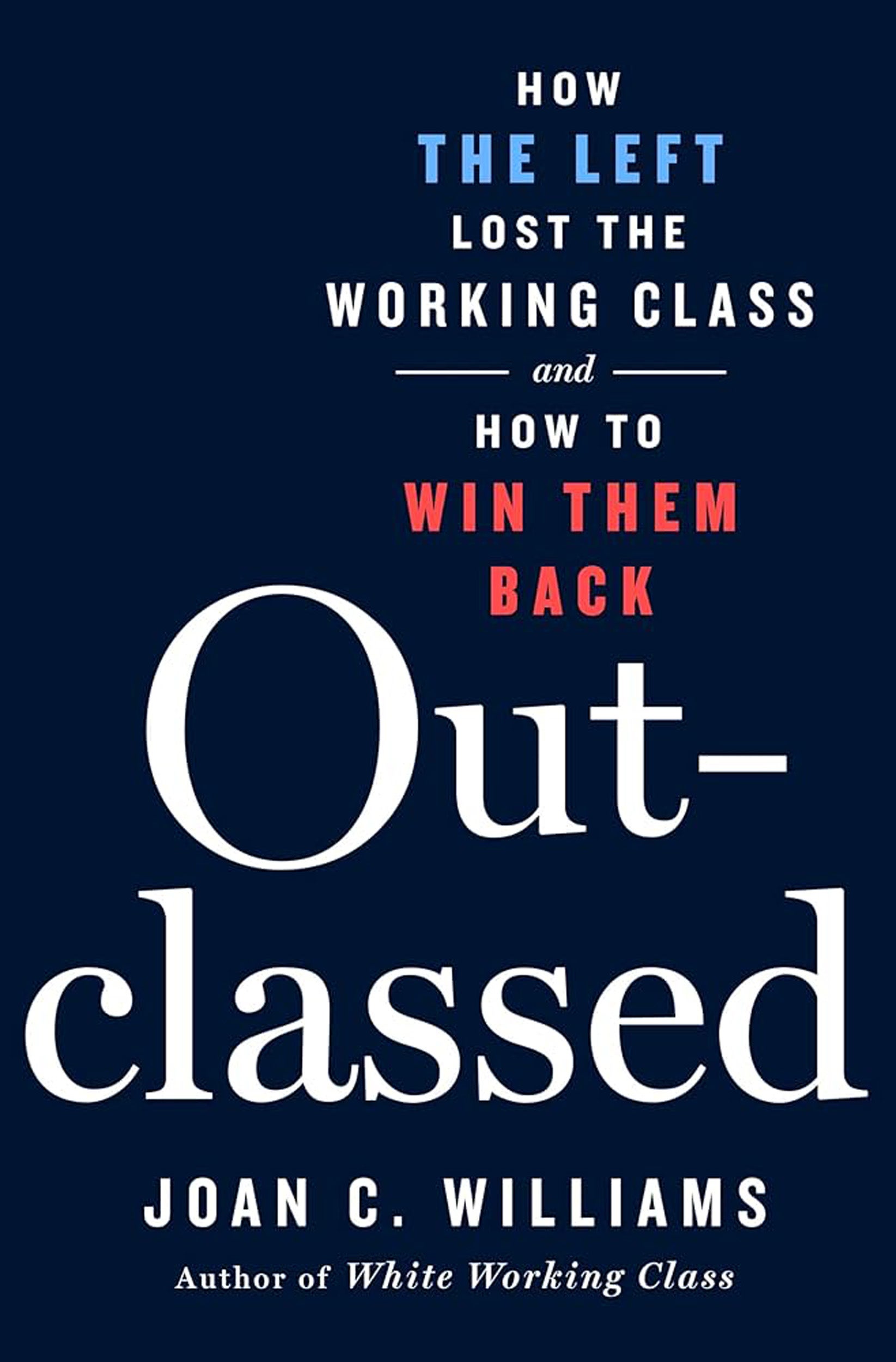
“Outclassed: How the Left Lost the Working Class and How to Win Them Back,” by Joan C. Williams ’80 (St. Martin’s Press)
Joan Williams, professor emerita at University of California College of the Law San Francisco, focuses on political divisions based on class and how to bridge the “diploma divide.” The right has connected with non-college graduates by expressing anger against elites and supporting traditional institutions such as the military and religion, she writes. To win back the votes of anti-elites, the left must offer a compelling progressive alternative, a proposal for which she offers in her book. A key, she writes, is to show respect for working-class voters and not dismiss their concerns as grievances. Williams outlines ways to appeal to male voters who have moved right and advocates for promoting working-class values to build support for progressive solutions to climate change and immigration reform.
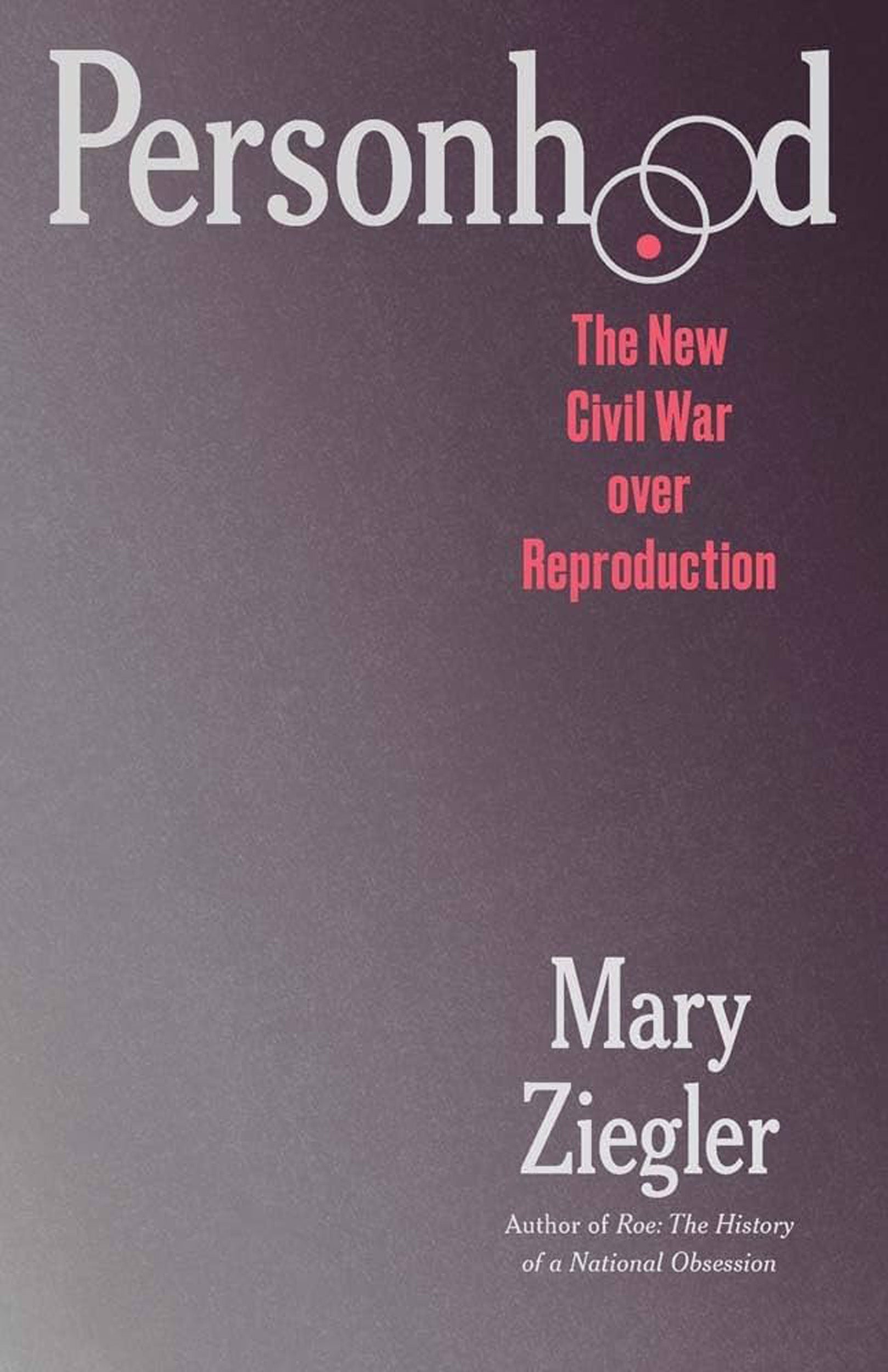
“Personhood: The New Civil War over Reproduction,”
by Mary Ziegler ’07 (Yale University Press)
The Supreme Court’s 2022 Dobbs decision which overturned Roe v. Wade was a seismic change to a long-recognized national right to abortion. Yet it still did not achieve the ultimate goal of anti-abortion activists, writes Mary Ziegler. That is fetal personhood, which she explains would establish that from the moment of fertilization a fetus is a human being entitled to individual rights under the U.S. Constitution. The law professor at University of California, Davis explores the origins of the personhood movement in the 1960s and shows how its proponents positioned it as a fight for equality against discrimination toward the unborn. Thus, its advocates have “transformed what civil rights mean,” she writes, and “fundamentally changed how Americans debate the path to equal protection under the law.”
